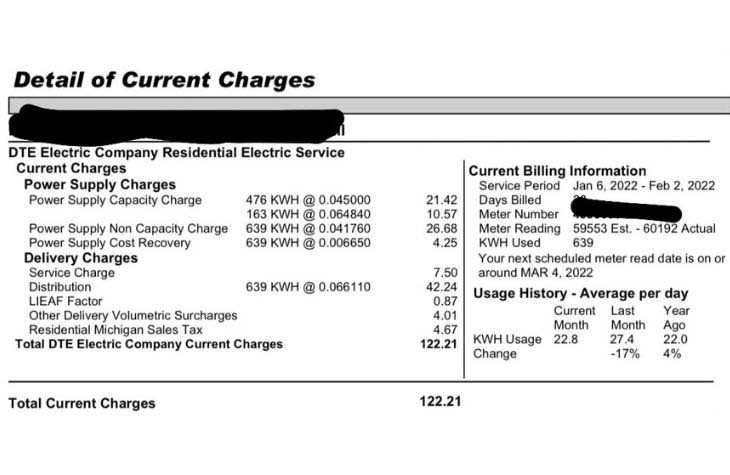Factors Influencing Average Electric Bills: Average Electric Bill Uk 2 Bedroom

The average electric bill for a 2-bedroom UK home is influenced by a multitude of factors, making it difficult to pinpoint an exact figure. Understanding these factors is crucial for managing electricity consumption and keeping bills under control.
Energy Consumption Habits
Energy consumption habits play a significant role in determining electricity bills. These habits encompass the everyday actions and choices made by residents that directly impact energy usage.
- Appliance Usage: The frequency and duration of appliance use directly affect electricity consumption. For example, leaving lights on unnecessarily, running appliances for longer than needed, or using high-energy appliances like ovens frequently can significantly increase electricity bills.
- Heating and Cooling: Heating and cooling are major electricity consumers, especially during colder and warmer months. Setting thermostats appropriately, using energy-efficient heating and cooling systems, and minimizing heat loss through insulation can substantially reduce electricity usage and costs.
- Standby Power: Even when appliances are not in use, many devices consume a small amount of electricity in standby mode. Unplugging unused appliances or using smart power strips that automatically cut off power can help reduce this “phantom load” and save energy.
Appliance Usage and Electricity Consumption
The type and frequency of appliance usage have a significant impact on electricity bills. Here is a table comparing the estimated annual electricity consumption of common household appliances:
| Appliance | Estimated Annual Electricity Consumption (kWh) |
|---|---|
| Refrigerator | 250-400 |
| Washing Machine | 200-300 |
| Tumble Dryer | 200-400 |
| Dishwasher | 100-200 |
| Electric Oven | 100-200 |
| Microwave | 50-100 |
| Television | 50-100 |
| Computer | 20-50 |
Average electric bill uk 2 bedroom – As seen in the table, appliances like refrigerators, washing machines, and tumble dryers are significant electricity consumers. Choosing energy-efficient models, using appliances sparingly, and adopting energy-saving practices can lead to substantial reductions in electricity bills.
Tips for Reducing Electricity Costs

Reducing your electricity bill in a 2-bedroom home can significantly impact your monthly expenses. By implementing energy-saving strategies, you can lower your consumption and enjoy substantial savings. This section explores practical tips, energy-efficient appliances, and optimization techniques for your heating and cooling systems.
Energy-Efficient Appliances
Energy-efficient appliances play a crucial role in reducing your electricity consumption. These appliances are designed to use less energy while maintaining their performance, leading to lower energy bills.
- Refrigerators: Choose refrigerators with an Energy Star rating, which signifies energy efficiency. Look for models with features like automatic defrost and adjustable shelves, which can contribute to lower energy consumption.
- Washing Machines: Opt for front-loading washing machines, as they use less water and energy than top-loading models. Consider models with an energy-efficient setting that reduces the water temperature and cycle time.
- Dishwashers: Energy-efficient dishwashers use less water and electricity than older models. Look for features like delayed start, which allows you to run the dishwasher during off-peak hours when electricity rates are lower.
- Lighting: Replace traditional incandescent bulbs with LED lights. LED bulbs use significantly less energy and last much longer, resulting in substantial savings over time.
Optimizing Heating and Cooling Systems, Average electric bill uk 2 bedroom
Efficient heating and cooling systems are essential for managing energy consumption. Simple adjustments and maintenance can significantly impact your energy bill.
- Thermostat Settings: Adjust your thermostat to optimize heating and cooling. Lowering the temperature by just a few degrees during the winter and raising it slightly during the summer can make a noticeable difference in your energy consumption.
- Insulation: Ensure your home is adequately insulated to prevent heat loss in the winter and heat gain in the summer. Check for air leaks around windows and doors and seal them with weather stripping or caulk.
- Regular Maintenance: Regular maintenance of your heating and cooling systems is essential for optimal performance and energy efficiency. Have your furnace and air conditioner serviced annually to ensure they are operating at peak efficiency.
Energy-Saving Habits
Simple changes in your daily habits can contribute to significant energy savings.
- Unplug Devices: Unplug electronic devices and appliances when not in use, as they continue to consume energy even when turned off. This includes chargers, TVs, and computers.
- Air Dry Clothes: Consider air-drying clothes instead of using a dryer, especially during warmer months. Air-drying reduces energy consumption and can save you money.
- Use Natural Light: Maximize natural light during the day by opening curtains and blinds. This reduces the need for artificial lighting, saving energy.
- Take Shorter Showers: Shorter showers reduce water heating costs, which can contribute to lower energy bills.
The average electric bill for a 2-bedroom home in the UK can vary significantly depending on factors such as energy efficiency, heating systems, and personal consumption habits. While energy costs are a concern for many, those seeking a new home might consider exploring options like 2 bedroom suites billings mt , which could offer a different cost structure and potentially lower energy bills compared to existing properties in the UK.
The average electric bill for a 2-bedroom home in the UK can vary significantly depending on factors such as insulation, heating system, and energy usage habits. While researching energy costs, it’s helpful to consider alternative housing options, such as 2 bedroom suites in Oklahoma City , which may offer different energy efficiency standards and potentially lower utility bills.
Ultimately, understanding the factors that influence electricity consumption is crucial for making informed decisions about energy usage and cost management in any location.
